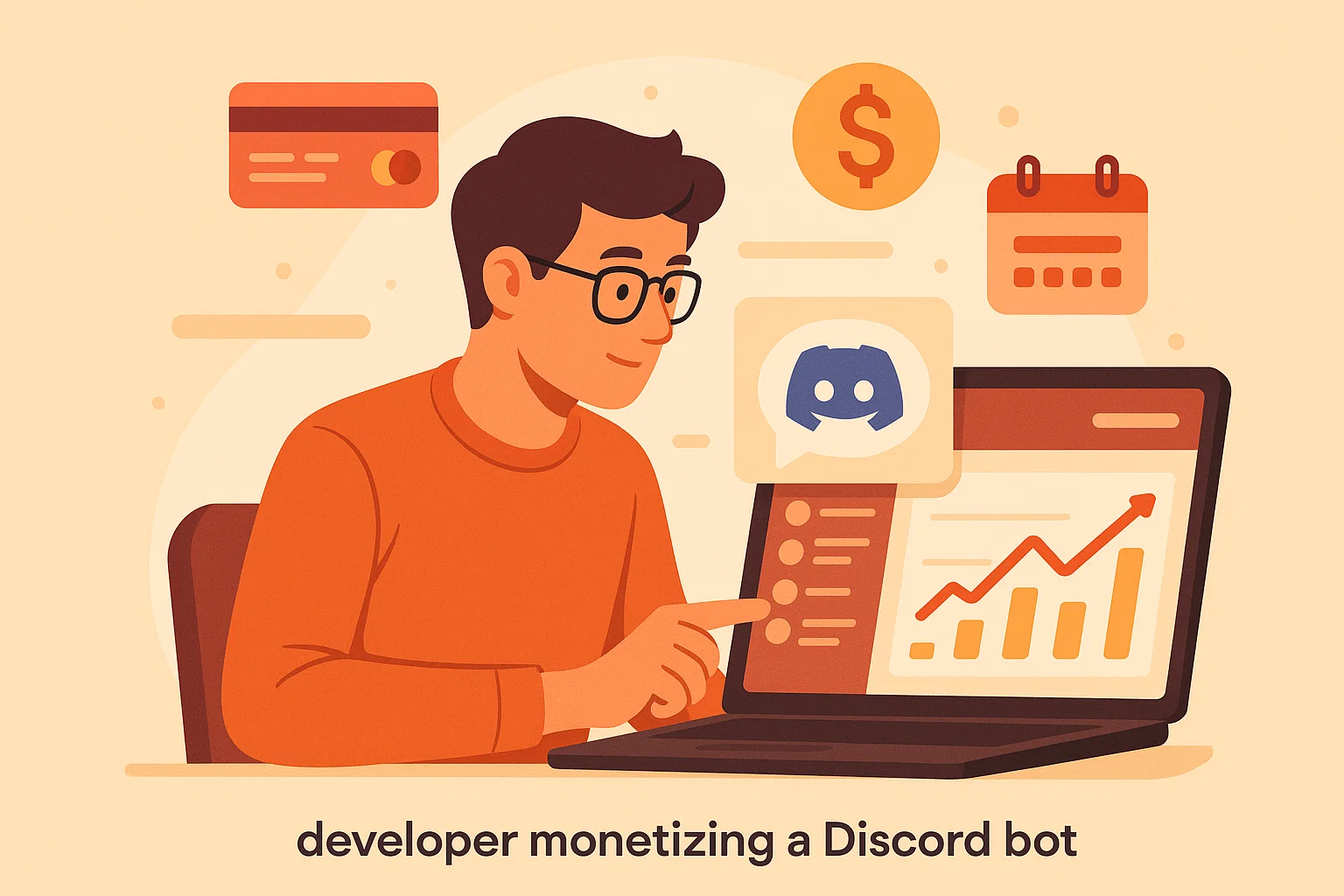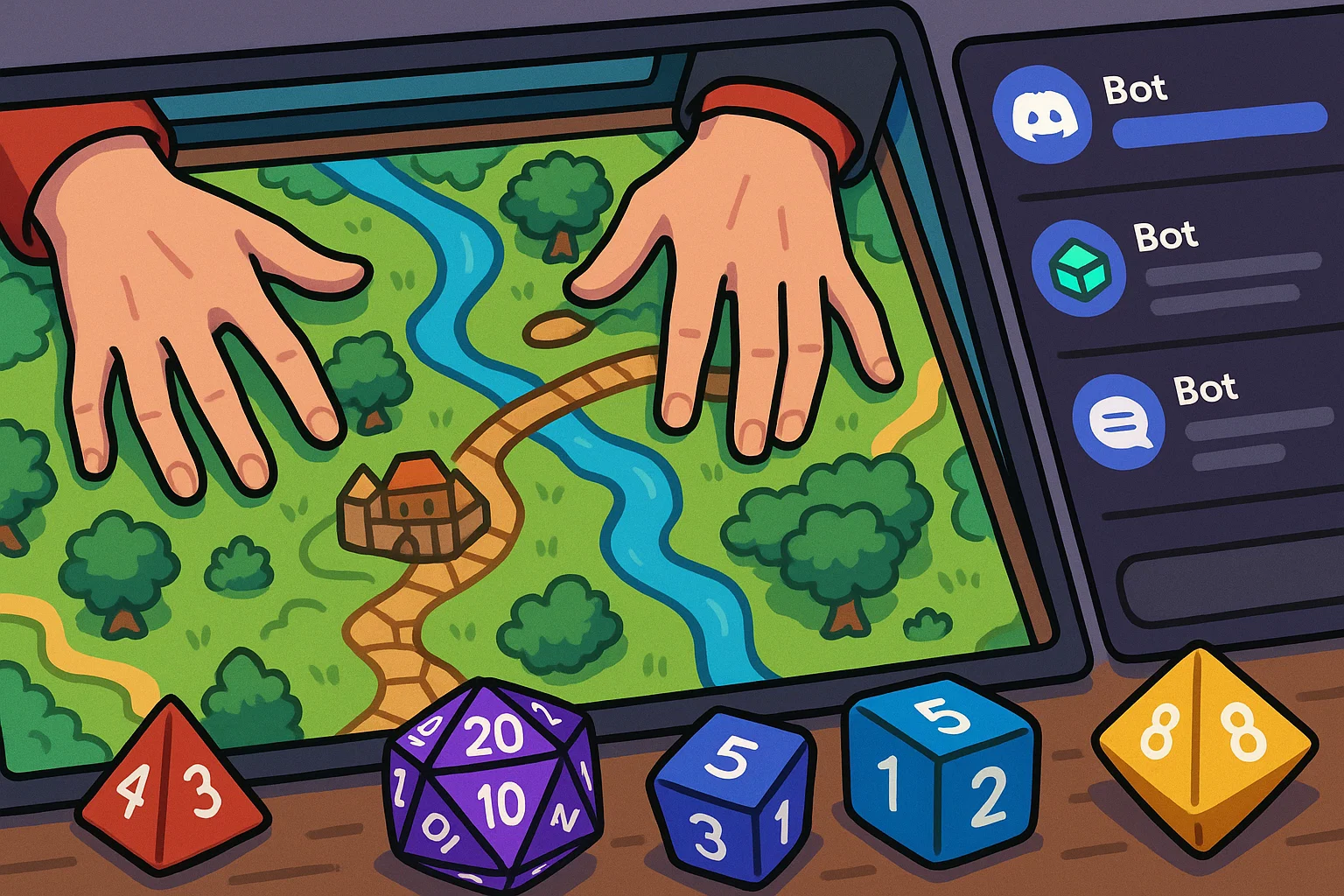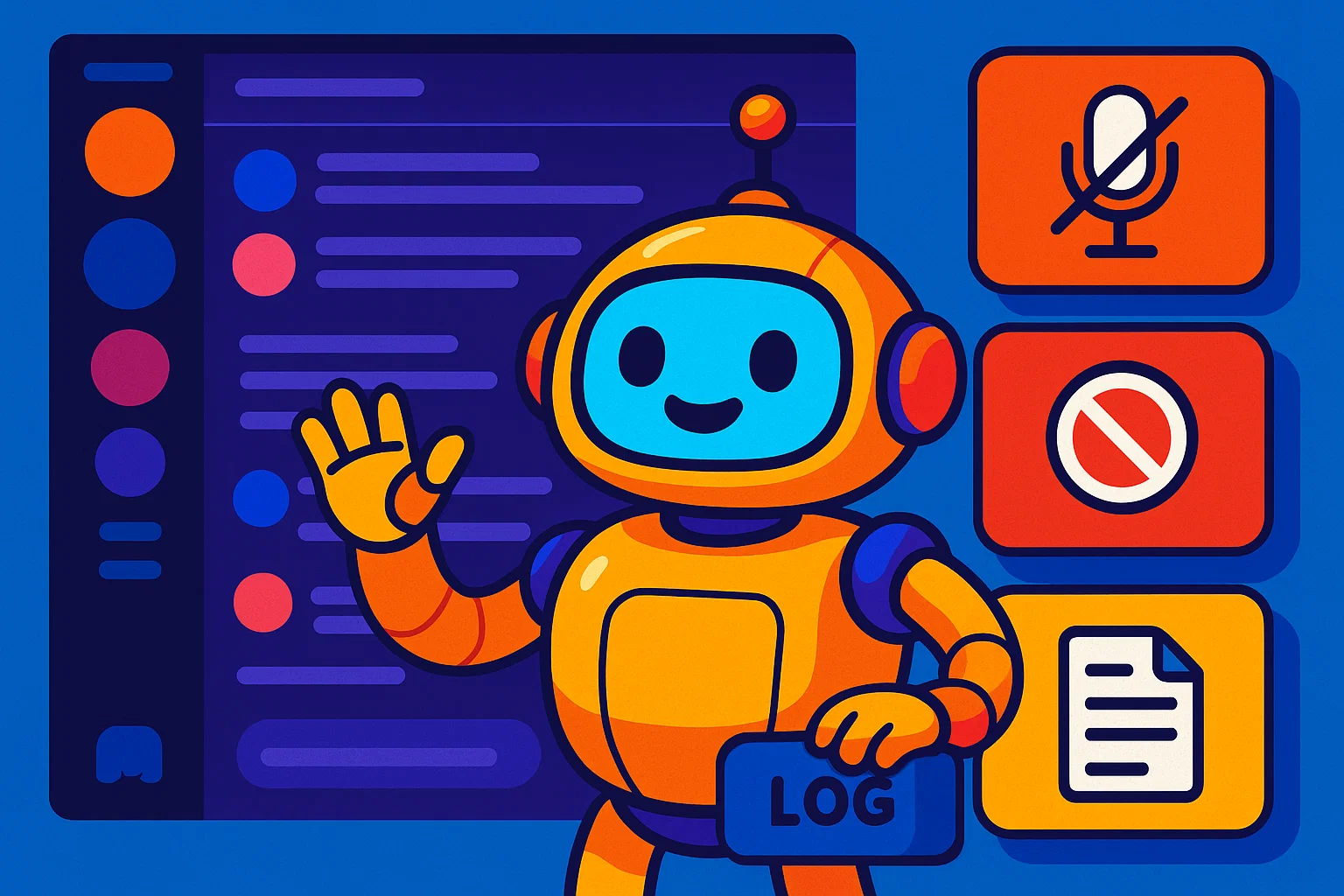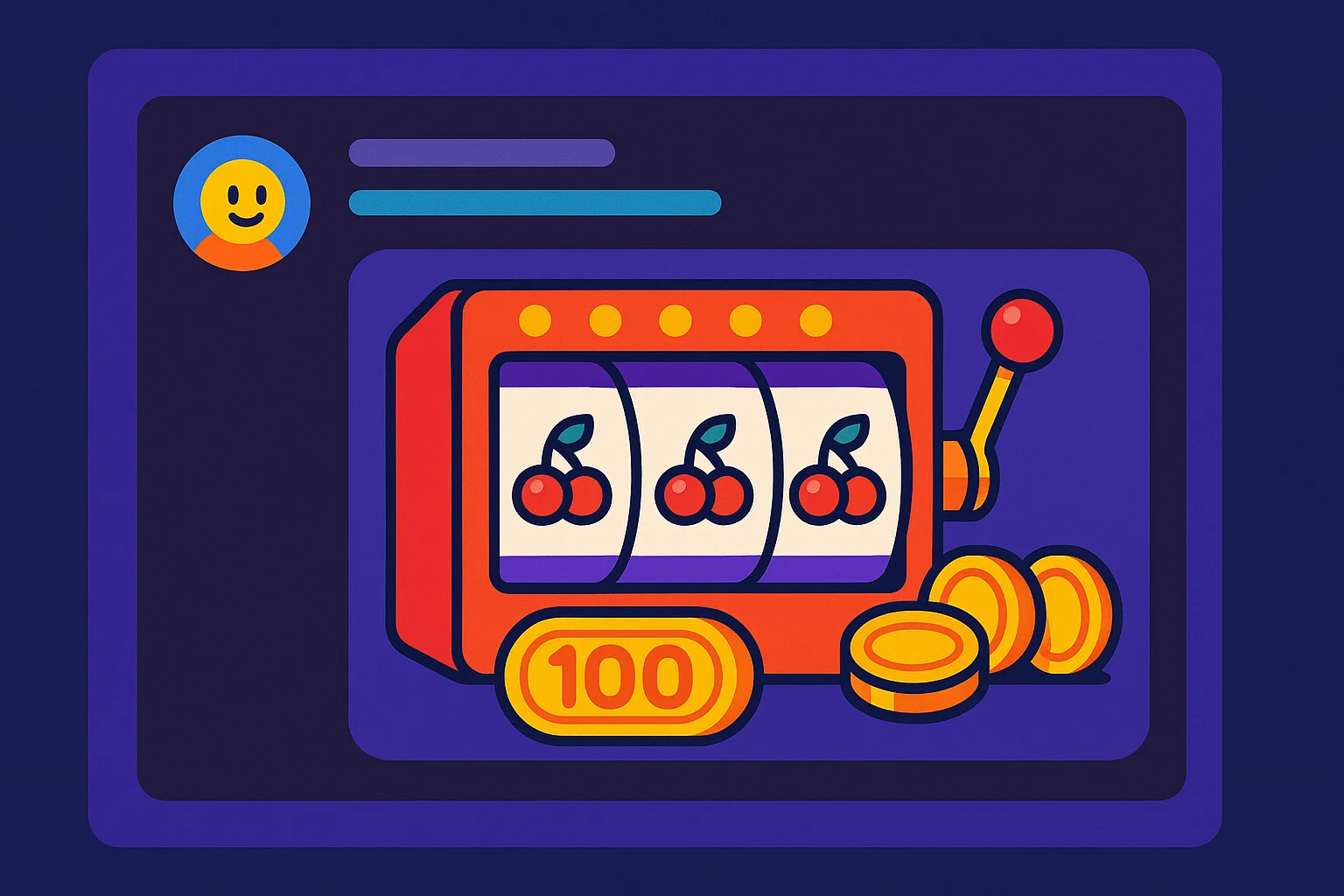Introduction
Can you make money from discord bots is one of the first questions developers and community leaders ask when they spot an opportunity. Are people willing to pay for moderation, analytics, or premium game content? This post answers that question with both informational and transactional value, showing monetization paths, implementation tips, and sample code so you can actually get paid. I’ll walk you through models like subscriptions, one-off purchases, donations, and custom work, plus the technical plumbing (payments, webhooks, account linking). In my experience, the best approach is test-driven: validate a small paid feature, then scale what users happily pay for.
What monetization of Discord bots means, and why it matters
Monetization means turning features into a revenue stream, often by offering premium access, exclusive content, or bespoke development. Bots started as community helpers for tasks like moderation and music, then evolved as creators layered on paid tiers and paid installs. Monetization matters because it funds hosting, development, and support. It also changes your responsibilities: you must handle billing logic, refunds, and data privacy.
How monetization typically looks
- Subscriptions: recurring access to premium features, billed monthly or yearly.
- One-time purchases: custom setups, server bundles, or unique items.
- Donations: voluntary support via platforms like Patreon or direct payments.
- Service contracts: build custom bots for servers or brands.
- Ad/affiliate revenue: limited in bots, but possible with content integrations.
Why this model is sustainable
When people pay, engagement and retention often increase. If you design a clear value ladder — free tier that proves usefulness, paid tier that saves time or unlocks content — you create predictable income that funds improvements.
How to make money from Discord bots, step-by-step
Follow this practical roadmap to monetize responsibly and reliably.
- Validate the idea
- Run a short poll in relevant servers, or release a minimal feature to test demand. Validation prevents wasted work.
- Pick a monetization model
- Choose from subscriptions, one-off purchases, donations, or bespoke development. Match model to audience: communities with steady users prefer subscriptions.
- Build a minimal viable product (MVP)
- Keep the free tier useful. Hide meaningful but not essential features behind paywalls, so users see value before buying.
- Implement secure payments
- Use a trusted payment processor like Stripe or PayPal. Implement server-side subscription verification with webhooks for reliability.
- Map Discord identities to billing records
- Store Discord user IDs or server IDs with subscription records, so the bot verifies access without storing excessive personal data.
- Gate access cleanly
- Use role assignment or permission checks. The bot should verify subscription status before unlocking premium commands.
- Test in private, then launch
- Beta test with trusted users, exercise refunds, cancellations, and edge cases.
- Provide support and iterate
- Good support increases retention. Act on feedback, and deploy small improvements regularly.
Checklist for launch
- Minimal required OAuth scopes only
- Secure token storage, environment variables for secrets
- Webhooks implemented and verified on the server side
- Clear refund and privacy policy visible to buyers
Node.js code example: subscription verification
// Node.js: verify a subscriber by Discord ID, using Express and Stripe
// npm install express stripe body-parser
const express = require('express');
const Stripe = require('stripe');
const stripe = Stripe(process.env.STRIPE_KEY);
const app = express();
app.use(require('body-parser').json());
// Simple endpoint to check subscription
app.get('/is-subscriber/:discordId', async (req, res) => {
try {
const discordId = req.params.discordId;
// Lookup subscription in your DB, example pseudo-code:
const record = await database.findSubscriptionByDiscordId(discordId);
if (!record) return res.json({ subscriber: false });
const session = await stripe.subscriptions.retrieve(record.stripeSubscriptionId);
const active = session.status === 'active' || session.status === 'trialing';
return res.json({ subscriber: active });
} catch (err) {
console.error('subscription check failed', err);
return res.status(500).json({ error: 'Internal error' });
}
});
app.listen(3000);
Why this matters: Always verify subscription status server-side, never rely on client checks.
Python example: webhook donation handler
# Python: handle a donation webhook with Flask, verify signature
# pip install flask stripe
from flask import Flask, request, abort
import os
import stripe
app = Flask(__name__)
stripe.api_key = os.getenv('STRIPE_KEY')
endpoint_secret = os.getenv('STRIPE_WEBHOOK_SECRET')
@app.route('/webhook', methods=['POST'])
def webhook():
payload = request.data
sig_header = request.headers.get('Stripe-Signature')
try:
event = stripe.Webhook.construct_event(payload, sig_header, endpoint_secret)
except Exception as e:
print('Webhook signature failed', e)
abort(400)
if event['type'] == 'charge.succeeded':
data = event['data']['object']
# Map payment to Discord user via metadata, unlock perks
return '', 200
if __name__ == '__main__':
app.run(port=3000)
Why webhooks: They let you react to payments reliably, and verify events with signatures.
Best practices, recommended tools, pros and cons
Best practices
- Minimal permissions: request only what the bot needs.
- Transparent policies: display refund, privacy, and support instructions.
- Secure storage: environment variables, rotated keys, and encrypted backups.
- Graceful failures: helpful messages for billing errors, rather than cryptic messages.
- Free tier with value: ensure people can try your bot before paying.
Recommended tools
- Payments: Stripe for subscriptions, PayPal for one-offs.
- Hosting: Docker on a VPS, or serverless for endpoints.
- Databases: PostgreSQL for scaling, SQLite for prototypes.
- Monitoring: Sentry or similar for error tracking.
- Listing: popular bot directories to increase discoverability.
Pros and cons
Pros
- Potential recurring income, scalable distribution, and direct user relationships.
- Cons
- Billing and support overhead, platform policy constraints, and the need for constant reliability.
Challenges, legal and ethical considerations, troubleshooting
Legal and ethical checklist
- Follow platform Terms of Service, including permission and rate rules.
- Respect privacy, store only needed identifiers, and disclose data usage.
- Prefer official APIs over scraping to avoid legal risk.
- For regions with stringent data laws, consult legal counsel and adopt stronger data controls.
Troubleshooting common problems
- Bot not responding: check intents, bot status, and server role permissions.
- Failed payments: inspect processor logs, webhook delivery, and user card status.
- Rate limits: queue requests and implement exponential backoff.
- OAuth scope errors: request minimal scopes and provide clear install documentation.
Security tips
- Use environment variables for all keys.
- Rotate keys on suspicion of compromise.
- Use server-side verification for all payment-related checks.
Authority and trust signals
Paraphrase: Platform developer documentation recommends minimal permissions and transparent user consent, to reduce privacy risks and improve trust, source: Discord developer documentation (https://discord.com/developers/docs/intro).
Paraphrase: Payment processors advise using server-side verification and webhooks to keep billing secure and auditable, source: Stripe documentation (https://stripe.com/docs/webhooks).
External resources
- Google's E-E-A-T guidance, for trust and content quality.
- Discord Developer Documentation, for permissions and intents.
- Stripe documentation on webhooks and subscriptions, for payment integration.
- Moz keyword research guide, for keyword intent and content strategy.
Images to place between sections
- Between Section A and B: Screenshot mockup of a checkout modal integrated with a Discord bot, alt text: "checkout for premium bot features".
- Between Section B and C: Diagram showing the user flow from invite, to payment, to feature unlock, alt text: "user flow for monetized discord bot".
FAQs
can you make money from discord bots?
Yes, you can make money from discord bots by offering premium features, subscriptions, donations, or custom bot development. Success depends on clear value, pricing, and compliance with platform rules.
How do I start monetizing a Discord bot?
Validate a feature with users, implement secure payments with a processor, map Discord IDs to subscriptions, and test in private. Offer a useful free tier and a clear upgrade path.
What payment processors work well with bots?
Stripe and PayPal are common choices, offering subscription management, webhooks, and developer tools to handle billing server-side.
Can I charge users directly inside Discord?
Discord does not manage payments for bot features, so you must use external processors and map access via server roles or API checks, while the bot enforces feature gates.
Is it legal to sell bot access?
Generally yes, if you follow platform rules, respect copyrights, and comply with payment and data laws. Avoid scraping and consult legal counsel if uncertain.
How much can a bot earn?
Earnings vary widely, from small side income to stable recurring revenue. Pricing, retention, and support quality all influence revenue potential.
Do I need to self-host to monetize?
Not necessarily, but self-hosting gives more control over data and billing. Managed hosting can work if you secure keys and ensure uptime.
How should I handle refunds and disputes?
Provide a transparent refund policy, use your payment processor’s dispute resolution tools, and keep logs to support claims. Proactive support often prevents disputes.
Legal and safety disclaimer
This article is informational and not legal advice. Always follow platform terms, payment processor policies, and local laws when handling money and personal data. Prefer APIs over scraping, implement throttling for rate-limited endpoints, and consult professionals for legal, tax, or compliance questions.
Conclusion and call to action
Key takeaway, can you make money from discord bots depends on the value you create, your technical execution, and the level of trust you build with users. Start small: validate a single premium feature, integrate secure billing, and iterate with real users. If you want, I can help design subscription logic, draft webhook handlers, or craft a pricing strategy tailored to your bot idea. Try a focused paid feature today, and refine based on feedback.



